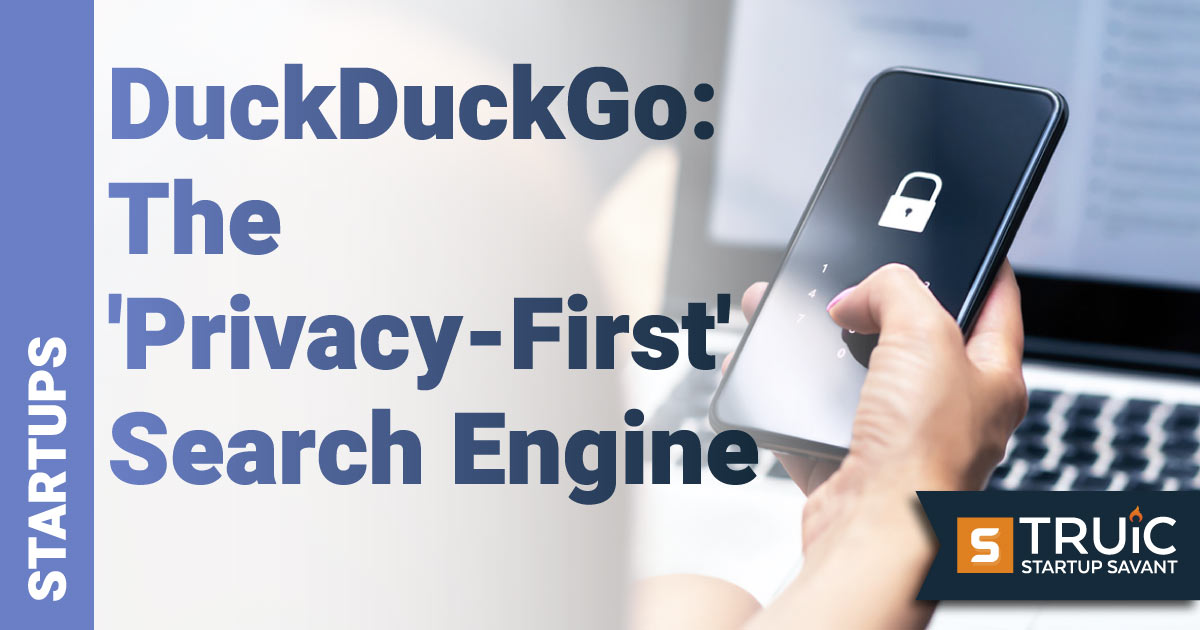The ‘Privacy-First’ Search Engine
The Strategy Story Behind DuckDuckGo

Last Updated: By TRUiC Team
DuckDuckGo is the “underdog” search engine that seemingly came out of nowhere in recent years, going so far as to start competing with search giants such as Google, Bing, and Yahoo.
With the increasing frequency of online advertising and information tracking technology that sells user information to the highest bidder, internet users have become increasingly cautious about their privacy when browsing the web.
Their concerns aren’t unwarranted. According to recent data from the Pew Research Center, roughly six out of every ten Americans believe it is not possible to go through daily life without having any of their personal data collected.
This is a staggering amount of people who simply believe that privacy, in today’s day and age, is nearly impossible to achieve.
With this in mind, it’s no surprise that DuckDuckGo has flourished as the “Privacy-first search engine,” implementing steps to ensure DDG users don’t have their personal data collected while browsing the web, and can finally achieve an inkling of personal privacy online.
The Beginning
DuckDuckGo was officially launched in 2008 by founder Gabriel Weinberg, an entrepreneur who had attempted to launch a social networking website before beginning his work on the DDG search engine.
From the beginning, DDG boldly promised users that they would not track their search history, and would maintain a focus on privacy. In 2011, DuckDuckGo announced, “Google tracks you. We don’t” to the world and began accelerating its focus towards a privacy-first search engine that can change the way we browse the web.
In November 2011, DuckDuckGo hired their first full-time employee, and by December of that year, they had moved out of the basement where the fledgling company started and occupied the first official “DuckDuckGo Headquarters” located in Paoli, Pennsylvania.
By February 2012, the search engine had officially reached 1 million searches in a single day – or over 10 searches per second. 483 days later, on June 10, 2013, they would reach 2,000 daily searches and double their previous record in a little over a year.
As the years went by, DuckDuckGo continued to grow their privacy-focused search engine and even branched out into a mobile application and browser extension that were available across all platforms.
As of February 2019, DDG officially reached 1 billion monthly searches and has grown its reach and influence globally. What started out as a small venture in Gabriel Weinberg’s basement in 2008 has now become a global phenomenon, helping billions of people all over the world browse the web without compromising their privacy.
DuckDuckGo’s Growth and Influence
The story of DuckDuckGo is both an impressive and inspiring one, showing how with enough time, effort, and a bold vision, a search engine born from a small seed of an idea can impact the world.
Today, DuckDuckGo receives about 3 billion searches every month and has over 6 million monthly downloads on mobile and desktop for their extensions and mobile applications. Their mission continues to be focused on privacy, aiming to show the world that privacy can be simple with the right technology. If they could make online privacy accessible to all in a simple manner, their goal would be achieved.
How did DuckDuckGo manage to grow so quickly and gain worldwide recognition and influence in its stratospheric rise? DuckDuckGo’s CEO, Gabriel Weinberg, emphasized the importance of establishing strict customer acquisition goals, testing concepts on real customers from the beginning, and creating a growth strategy that meets your goals and abilities.
One of the most important pieces of validation that a startup founder can get is to test their concept on real customers and get their feedback in real time. If you can speak directly with your initial customers, ask them questions, and pick their brains about how you can improve your product or service, you’ll be able to meet their needs exactly. This is how DuckDuckGo was able to adapt to its users and see the success they did.
Weinberg emphasized the importance of setting strict customer acquisition goals and doing everything in your power to meet those goals to keep growing. Customers are the lifeblood of any startup, and having a consistently growing customer base is critically important if a startup is to succeed.
As his final point, Gabriel described how DuckDuckGo created a growth strategy that met their goals and was within the realm of their team’s abilities to execute.
Combining all of these factors together and never losing sight of their privacy-focused vision is how DuckDuckGo was able to grow to several billion monthly searches every single month.
Startup founders should consider these elements in their own enterprises and think of ways they can get real-time feedback on their products and services from real customers, as well as develop a customer acquisition strategy and growth plan that gets the ball rolling towards profitability.
Who knows? Maybe your startup will begin its stratospheric ascent in the footsteps of DuckDuckGo, going from a fledgling company to a global giant.


